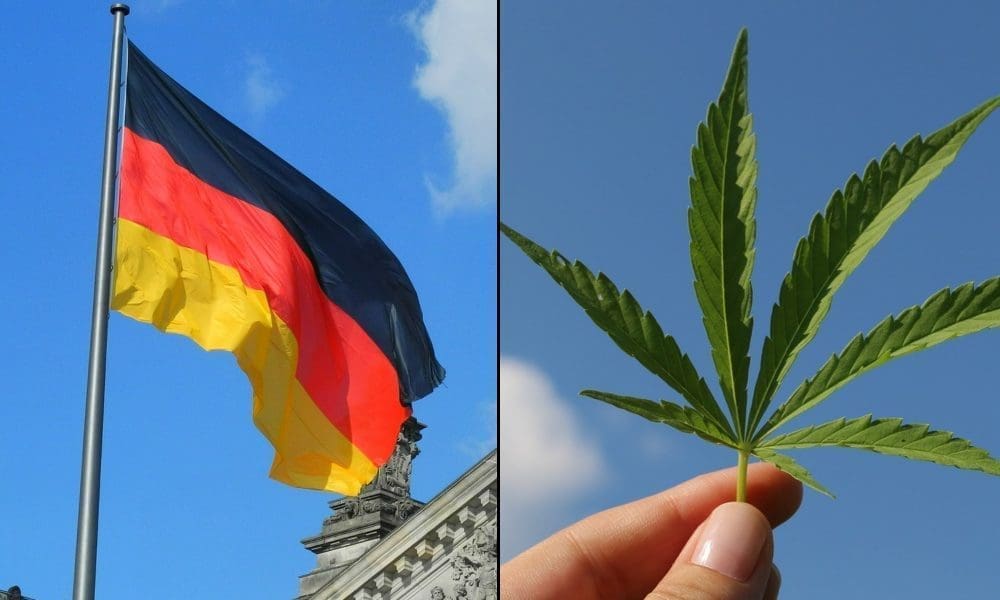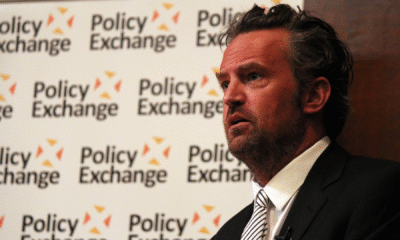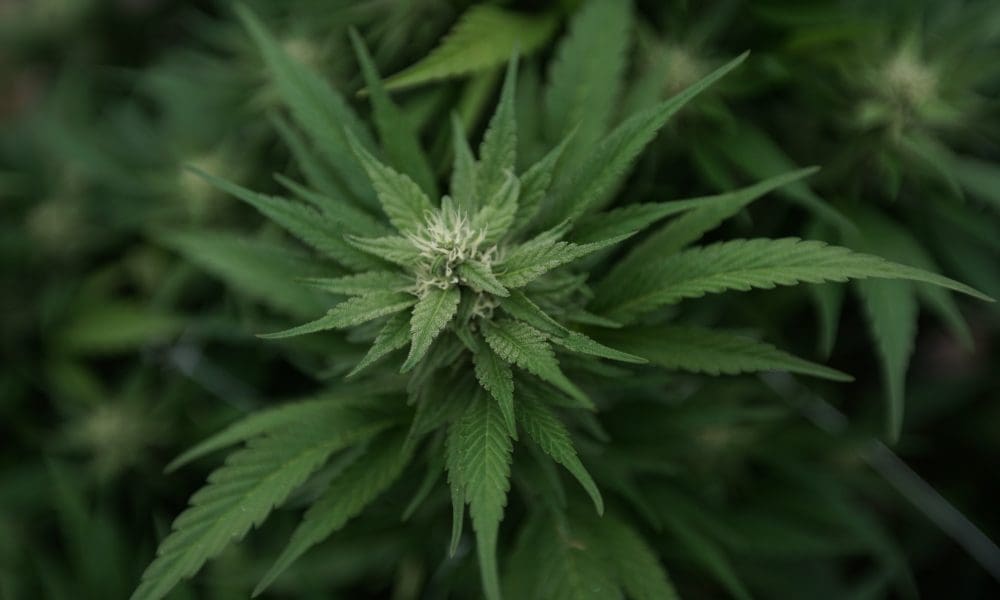featured
New German Medical Cannabis Restrictions Will Harm Patients And Hinder Industry Growth (Op-Ed)
Published
1 day agoon

“Despite significant and stable market growth, certain proposed policy changes that have been drafted may hinder industry progress and restrict patient access.”
By Niklas Kouparanis, Bloomwell Group
A new threat looms over the burgeoning medical cannabis market in Germany.
Recently, the German Health Ministry released a draft amendment that would require patients to have an in-person consultation annually and would bar prescriptions from being delivered by mail. While this is a draft and is likely to be changed during the legislative process, many are questioning the potential effects of policies like these on an otherwise growing and stable market.
Will this stall or even curtail future success?
Where the German medical cannabis market currently stands
Since the passage of the Cannabis Act (CanG) in April 2024, Germany has experienced significant growth in the country’s medical cannabis market due to cannabis being reclassified cannabis as a non-narcotic. This removed unnecessary administrative burdens on the medical cannabis market and allowed more patients to access the plant as a wellness treatment.
Prior to CanG being implemented last year, there were an estimated 200,000 to 300,000 medical cannabis patients in the German market. As of May 2025—just over one year after CanG went into effect—Whitney Economics estimates that there are now an additional 500,000 to 600,000 patients participating in the legalized self-paying market.
I predict that we could soon see a million patients if the market can grow under its current regulatory conditions.
As reported by the Federal Institute for Drugs and Medical Devices (BfArM), Germany imported over 37.223 metric tonnes of medical cannabis products in the first quarter of 2025. This number represents a noteworthy increase as the total imports for Q1 2025 increased by roughly 14.8 percent compared to the Q4 2024 total (32.419 metric tonnes). Compared to the same period a year prior, the Q1 2025 import numbers represent an increase of over 457 percent.
Proposed changes seek to put patient access at risk
Despite significant and stable market growth, certain proposed policy changes that have been drafted may hinder industry progress and restrict patient access.
In July 2025, the German Health Ministry released a draft amendment that would require patients to have an in-person consultation at a physician’s office or during a home visit once a year to be prescribed medical cannabis and also as a first step before starting their therapy.
In addition, medical cannabis treatments would no longer be able to be delivered by mail order. Patients would have to pick up their treatments at physical pharmacy locations.
Such legislative changes to current German cannabis law are led under the direction of Federal Health Minister Nina Warken, who is seeking to restrict patient access to medical cannabis. Warken has emphasized that record-high cannabis imports have increased beyond what was anticipated.
Report Reveals Digital Access Restrictions Would Push Patients to Illicit Market
According to German medical cannabis company Bloomwell Group’s latest report, “The Cannabis Barometer–Potential Consequences of Restricted Telemedicine Access,” which surveyed 2,500 medical cannabis patients in Germany, 41.7 percent of patients would revert to the illicit market if digital access were blocked.
Such findings suggest that digital access to licensed, physician-supervised cannabis therapy has successfully transitioned hundreds of thousands of patients away from unsafe, unregulated sources and into safe, pharmacy-distributed care.
Additionally, Bloomwell found that medical cannabis patient numbers show no signs of slowing down: In May and June 2025, the number of prescriptions filled on the company’s digital platform exceeded those from March 2024—the final month before medical cannabis was reclassified—by more than 1,100 percent, a new record high.
Other key findings from the Cannabis Barometer report included:
- Only 7 percent would consider joining one of Germany’s legal cannabis clubs, which mainly serve recreational users.
- Seventy-nine percent of patients previously relied on unlicensed sources (illegal market and/or through friends and acquaintances) before accessing digital therapy.
- Forty-seven and a half percent now say cannabis obtained from pharmacies is less expensive than unlicensed products, debunking myths about affordability. Only 13.8 percent responded that pharmacy cannabis is more expensive.
- Eighty-three percent believe medical cannabis from pharmacies is of higher quality than illicit alternatives.
Public and safety benefits of digital access
As mentioned, the passage of CanG allowed for further patient access to the legalized medical cannabis system. Such access prompted some individuals to shift from the illicit market to the regulated medical system, as they could now access prescribing physicians and treatments through digital platforms—signaling a significant harm reduction and an overall win for major public health.
Restricting digital access not only reverses this trend but also reintroduces substantial risks associated with unlicensed products, such as contamination, mislabeling and improper packaging that isn’t child-resistant.
Overlooked by critics of the legalized telemedical cannabis industry is that digital consultations for patients still involve licensed prescribing physicians, helping to ensure proper oversight and usage. Removing this channel simply undermines patient access without any apparent benefit.
Access equality for disabled and rural populations
Medical cannabis treatment is often prescribed to patients experiencing conditions that can vary in severity and may limit their mobility. Patients with chronic conditions, immunocompromised and disabilities can find it extremely difficult to travel to physicians’ offices for in-person consultations. The same issue applies to Germans living in rural areas.
These patients depend on digital consultations and mail-in orders to treat their medical conditions. Also, since there are a limited number of doctors in Germany who prescribe medical cannabis, many of these patients may be left without access and may have to turn to the illicit market.
Economic impact of restriction of access
The proposed policy changes not only pose harm to patients but also hinder the market’s growth. The German medical cannabis industry has demonstrated significant and stable development, generating job opportunities, tax revenue and investment opportunities. Regressive policies could slow or upend progress.
As mentioned in the Cannabis Barometer report, 41.7 percent of German medical cannabis patients stated that they would seek cannabis through illicit sources if their digital access were restricted. If that is the case, a large portion of economic activity would shift from regulated, taxable sales to the illicit market.
While we continue to consider these points, it’s important to remember that we are still at the beginning of the policy process and are hopeful that these changes are unlikely to be implemented. The German market will continue to thrive.
Niklas Kouparanis is CEO and co-founder of Bloomwell Group. Since 2017, he’s been a serial entrepreneur, medical cannabis pioneer, founder and growth activator of companies, all while shaping the future of the European cannabis industry.

Author: mscannabiz.com
MScannaBIZ for all you Mississippi Cannabis News and Information.
You may like
-


Bipartisan Coalition Of 32 Attorneys General Pushes Congress To Urgently Pass Marijuana Banking Bill
-


Marijuana And CBD Provide ‘Significant Symptom Relief’ For Inflammatory Bowel Disease Patients, Federally Funded Study Finds
-


Doctor Who Allegedly Said ‘I Wonder How Much This Moron Will Pay’ Pleads Guilty
-


Killing reported at Oklahoma marijuana grow operation
-


Texas Voters Want Synthetic THC Outlawed, Poll Shared By Proponents Of Reining In Hemp Industry Finds
-


Judge rejects No Savage’s rap culture argument – NBC4 Washington
featured
Bipartisan Coalition Of 32 Attorneys General Pushes Congress To Urgently Pass Marijuana Banking Bill
Published
2 hours agoon
July 26, 2025
A bipartisan coalition of 32 state and territory attorneys general from across the U.S. are calling on Congress to pass a marijuana banking bill to free up financial services access for licensed cannabis businesses.
In a letter sent to House and Senate leaders on Thursday— led by the attorneys general from Washington, D.C., Georgia, Maryland and Ohio—the officials said they want to see the Secure and Fair Enforcement Regulation (SAFER) Banking Act taken up this session.
“We are a bipartisan group of state and territorial attorneys general who, like you, have a strong interest in protecting the physical and economic wellbeing of our constituents while enabling economic growth and stability in our respective states,” the letter says. “We therefore urge Congress to advance this legislation, which will increase access to regulated banking and financial services for state-regulated cannabis businesses in jurisdictions that have legalized these businesses.”
“It is increasingly critical to move cannabis commerce into the regulated banking system. The majority of states and several territories have legalized some use of cannabis,” it says. “As more states continue to consider and implement legalization efforts, the lack of access to America’s financial system by cannabis businesses—which is a direct result of federal banking law—presents a considerable safety issue for the public.”
The officials stressed that, under current federal policy, many marijuana businesses are forced to operate on a largely cash-only basis, making them targets for crime and putting employees and customers “at greater risk.”
“Allowing access to the nation’s regulated banking system is crucial to public safety and to ensuring that lawful businesses in our states have access to regulated banking services,” they wrote.
Today I joined a bipartisan coalition urging Congress to pass the SAFER Banking Act. Legal cannabis businesses in states like Maryland are forced to operate in cash because of outdated federal rules—putting workers at risk and making it harder to collect taxes and enforce the… pic.twitter.com/n2YPAGIcnQ
— Anthony G. Brown (@OAGMaryland) July 24, 2025
The letter also states that the current lack of banking access for the cannabis industry makes tax collection and oversight more challenging, and the SAFER Banking Act “would help ensure that state governments do not forfeit hundreds of millions of dollars in tax revenue that the cannabis industry generates.”
However, despite the attorneys general saying at the top of the letter that they’re voicing support for the “SAFER Banking Act of 2025,” the bill has not yet been reintroduced this session, so it’s unclear whether any provisions might be changed from the prior version that died at the end of the last Congress.
“To address these challenges, we request that Congress advance the SAFER Banking Act or similar legislation. Congress should provide a safe harbor for depository institutions that provide a financial product or service to a covered business in a state that has implemented laws and regulation that ensure accountability in the cannabis industry. An effective safe harbor would bring billions of dollars into the banking sector, enabling law enforcement, federal, state, and local tax agencies, and cannabis regulators in the states and territories to more effectively monitor cannabis businesses and their transactions. Compliance with tax laws would be simpler and easier to enforce with the regulated tracking of funds in the banking system, resulting in higher tax revenues.”
“The SAFER Banking Act is common-sense, bipartisan, and will beneficially impact the safety of the nearly 75 percent of Americans who live in a state where cannabis has been legalized,” the letter concludes. “The bill respects both state sovereignty and the current status of cannabis at the federal level. It does not encourage legalization, nor does it facilitate cannabis sales in states that have chosen not to legalize it.”
“The SAFER Banking Act simply addresses the specific public policy challenges facing states in light of the federal prohibition on banking cannabis-related funds, and it does so in a way that will help move cash from legal cannabis businesses into the highly regulated banking system, where it will be more transparent to state regulators and law enforcement,” it says. “We look forward to working on this bipartisan issue with you.”
The other signatories on the letter are the attorneys general of Alaska, American Samoa, Arizona, California, Colorado, Connecticut, Delaware, Hawai’i, Illinois, Maine, Massachusetts, Michigan, Minnesota, Nevada, New Jersey, New Mexico, New York, Northern Mariana Islands, Oklahoma, Oregon, Pennsylvania, Rhode Island, South Dakota, U.S. Virgin Islands, Utah, Vermont, Washington and West Virginia.
“When legal cannabis businesses are forced to operate in cash, it’s not just inefficient–it’s dangerous,” Arizona Attorney General Kris Mayes (D) said in a press release. “The SAFER Banking Act is a practical solution that will protect workers and communities while ensuring Arizona can effectively collect taxes and oversee this growing industry.”
Michigan Attorney General Dana Nessel (D) said that, “By reducing the risk of crime and improving tax compliance through access to regulated financial services, the SAFER Banking Act has the ability to enhance both public safety and transparency.”
“With billions in revenue, giving cannabis businesses a secure place to bank isn’t just smart policy—it’s common sense,” she said.
Colorado Attorney General Phil Weiser (D), meanwhile, said he’s “been urging Congress to allow cannabis companies to access the commercial banking system for years because of the safety risks many cannabis companies take on simply to do business.”
Attorney General Phil Weiser today joined a bipartisan coalition of attorneys general in calling on Congress to pass legislation which would provide legal clarity for banks and financial institutions to serve state-regulated cannabis businesses. Read more: https://t.co/Umb0v9hW8L pic.twitter.com/7gVfEDZrcB
— Colorado Attorney General (@COAttnyGeneral) July 25, 2025
“This commonsense reform will also make it easier for Colorado to oversee the industry, better protecting consumers, public safety, and public health,” he said.
Meanwhile, the Democratic Senate sponsor of the marijuana banking bill recently said that, despite efforts to coordinate meetings around the legislation, other priorities have taken precedence for now.
Asked about recent comments Sen. Bernie Moreno (R-OH)—the lead GOP sponsor of the SAFER Banking Act this session who told Marijuana Moment that he doesn’t expect the bill to come up until this fall—Sen. Jeff Merkley (D-OR) said, “Hopefully sooner than later in my mind.”
In January, the office of Rep. Dave Joyce (R-OH), who is again leading the effort on the House said, told Marijuana Moment that he would be filing the cannabis banking legislation this session but that its introduction was “not imminent” as some earlier reports had suggested.
A leading anti-marijuana group recently sounded the alarm about a possible attempt to put the cannabis banking measure in a cryptocurrency bill that was advancing on the Senate floor, but that didn’t come to fruition.
With Republicans in control of both chambers and key leadership positions filled by opponents of marijuana legalization, it’s been an open question about whether any cannabis reform legislation stands a chance of passage in the short-term. That’s despite the fact that President Donald Trump endorsed marijuana industry banking access, federal rescheduling and a Florida legalization initiative on the campaign trail. However, he’s been silent on the issue since taking office.
On the House side, a Republican lawmaker said in March he’s hopeful that Congress will be able to get a marijuana banking bill across “the finish line” this session, arguing that the current barriers to financial services for the industry represent a “second tier” of prohibition.
Cannabis industry banking challenges came up in several congressional hearings in March, including a Senate Banking Committee meeting on debanking where senators on both sides of the aisle addressed the lack of financial services access for marijuana businesses.
Meanwhile, in January congressional researchers released a report detailing the subject of debanking—while making a point to address how the marijuana industry’s financial services access problem “sits at the nexus” of a state-federal policy conflict that complicates the debate.
Separately, the Government Accountability Office (GAO) announced in December that it’s convening focus groups comprised of marijuana businesses to better understand their experiences with access to banking services under federal prohibition.
—
Marijuana Moment is tracking hundreds of cannabis, psychedelics and drug policy bills in state legislatures and Congress this year. Patreon supporters pledging at least $25/month get access to our interactive maps, charts and hearing calendar so they don’t miss any developments.![]()
Learn more about our marijuana bill tracker and become a supporter on Patreon to get access.
—
The industry remains frustrated with the lack of progress on the cannabis banking issue under the last administration.
A Senate source told Marijuana Moment in December that Republican House and Senate leadership “openly and solely blocked” then-Senate Majority Leader Chuck Schumer’s (D-NY) attempt to include the bill in a government funding bill as the session came to a close.
Sens. Elizabeth Warren (D-MA) and Tommy Tuberville (R-AL) had challenged the idea that there was enough GOP support for the SAFER Banking Act to pass on the Senate floor during the lame duck session.
Warren accused certain Republican members of overstating support for the legislation within their caucus, while also taking a hit at Trump for doing “nothing” on cannabis reform during his time in office as he makes a policy pivot ahead of the election by coming out in support of the marijuana banking bill and federal rescheduling.
Sen. John Hickenlooper (D-CO) also recently argued in an interview with Marijuana Moment that the main barrier to getting the marijuana banking bill across the finish line is a lack of sufficient Republican support in the chamber. And he said if Trump is serious about seeing the reform he recently endorsed enacted, he needs to “bring us some Republican senators.”
Prior to becoming House speaker, Rep. Mike Johnson (R-LA) consistently opposed cannabis reform, including on incremental issues like cannabis banking and making it easier to conduct scientific research on the plant.
Meanwhile, on the one-year anniversary of a Senate committee’s passage of the SAFER Banking Act in September, the Congressional Budget Office (CBO) released an analysis on the economic impact of the reform, including the likely increase in federally insured deposits from cannabis businesses by billions of dollars once banks receive protections for servicing the industry.
Separately, the CEO of the financial giant JPMorgan Chase said recently that the company “probably would” start providing banking services to marijuana businesses if federal law changed to permit it.

Author: mscannabiz.com
MScannaBIZ for all you Mississippi Cannabis News and Information.
featured
Marijuana And CBD Provide ‘Significant Symptom Relief’ For Inflammatory Bowel Disease Patients, Federally Funded Study Finds
Published
3 hours agoon
July 25, 2025
A majority of patients with inflammatory bowel disease (IBD) said they felt marijuana and CBD were “beneficial” and provided “significant symptom relief” from their disorder, according to a new federally funded survey-based study.
With support from the National Institutes of Health (NIH), researchers at Case Western Reserve University conducted a survey of IBD patients, inquiring about different treatment options they feel could effectively address the pain and other symptoms associated with their condition.
More than 50 percent of participants who reported using cannabis said they feel it’s an effective therapeutic option, offering “relief from abdominal pain, other pain, stress, anxiety, depression, and nausea/vomiting.”
“The strong support of cannabis and CBD oil as medical treatments and therapeutic effects highlights the potential for cannabis and CBD oil as treatments in IBD,” the study authors said. “Notably, 19.4 percent of IBD patients reported decreased opioid use, and 14.5 percent reported induced remission with cannabis or CBD oil,” the study says.
“The beliefs on the efficacy of cannabis and CBD oil are comparable to that of prescribed medications (e.g., corticosteroids and biologics/immunosuppressants), suggesting that cannabis may be perceived as equally effective. These results show that there exists a strong belief that these substances could be favorable to various IBD symptom relief, including abdominal pain, diarrhea, anxiety, and inflammation.”
The researchers noted that a significant portion of respondents with IBD self-reported using cannabis (54 percent) or CBD (41 percent) for “medical use, symptom relief, pain management, and mental health support.”
“A large proportion, 63 percent, of IBD participants reported that cannabis had a somewhat, very, or extremely beneficial effect in relieving their IBD symptoms, while 57 percent held this belief about CBD oil,” it says.
“Interestingly, we found that IBD patients were more likely to have used cannabis or CBD oil for short-term symptom relief (37 percent and 26 percent, respectively) compared to long-term symptom relief (23 percent and 18 percent, respectively). Such a pattern indicates that, among IBD patients, these substances are considered to be more effective in the management of acute symptoms rather than in the long-term management of the disease.”
The survey-based cross-sectional study involved 139 participants, including 106 IBD patients and 39 non-IBD controls between the ages of 18 and 69.
The authors concluded that the study demonstrated “increasing interest and positive perceptions by IBD patients toward the use of cannabis and CBD oil as complementary or alternative therapies for symptom management.”
It also “highlights the common perception among IBD patients that cannabis and CBD oil are effective therapeutic agents for symptom management, in spite of the lack of conclusive clinical evidence.”
“The findings indicate that a significant proportion of IBD patients use cannabis, notice symptom relief, and prefer its therapeutic use,” the study says.
The results comport with a scientific review of research on the impacts of marijuana on inflammatory bowel diseases such as Crohn’s disease (CD) and ulcerative colitis (UC) that was released last year, finding that cannabinoid therapy helped reduce disease activity and improved quality of life in patients with the chronic diseases.
In March of last year, a separate study in the Journal of Health Research and Medical Science found that “cannabinoids show potential in improving disease activity” and quality of life in patients with ulcerative colitis.

Author: mscannabiz.com
MScannaBIZ for all you Mississippi Cannabis News and Information.
featured
Doctor Who Allegedly Said ‘I Wonder How Much This Moron Will Pay’ Pleads Guilty
Published
4 hours agoon
July 25, 2025
It’s been almost two years since the world woke up to the news of the death of Matthew Perry, one of the most iconic American actors of the ’90s and ’00s. Best known for playing the beloved and inexhaustibly funny Chandler Bing on Friends, Perry not only left an indelible mark on millennial pop culture but also became a powerful voice in raising awareness about addiction.
In his autobiography, Friends, Lovers and the Big Terrible Thing, the actor shared his painful story of substance abuse, seeking to provide hope and inspire others in this situation.
Although drug use was not initially suspected as the cause of death, Perry’s autopsy revealed that he died from the acute effects of ketamine. The actor had reportedly been receiving therapy with this substance to treat depression and anxiety. While this drug is becoming a more popular and scientifically backed treatment for mental health, supervision by a professional is essential to ensure safety and effectiveness.
According to CTV News, Perry did indeed have such assistance, but allegedly began taking more ketamine than prescribed without his doctor’s knowledge, obtaining it illegally.
Now, in a grim turn of events, the doctor who allegedly administered the substance to Perry has pleaded guilty. Dr. Salvador Plasencia is accused, along with four others, of supplying ketamine to the actor. Prosecutors allege the defendants exploited Perry’s history of addiction for financial gain.
Another defendant is Dr. Mark Chavez, who allegedly provided the drug to Plasencia. According to Chavez’s plea agreement, text messages exchanged between the two doctors reflect a disdainful and inhumane attitude toward Perry. One example: Plasencia allegedly wrote “I wonder how much this moron will pay” in reference to the actor.
His question did not go unanswered: according to Healing Maps, Perry paid approximately USD 55,000 for six to eight daily ketamine injections during the month prior to his death.
Furthermore, Plasencia allegedly visited the actor’s home multiple times to administer the substance, reaching exorbitant amounts (up to $12,000) per visit. He also allegedly taught injection techniques to Perry’s assistant, Kenneth Iwamasa, who is among the defendants as well.
Jasveen Sangha, known as the “Ketamine Queen,” is also among the accused, having allegedly sold the dose of ketamine later determined to be lethal. However, she has pleaded not guilty and has not yet reached an agreement with the prosecutor’s office.
On his part, Plasencia faces up to 40 years in prison, although he will likely receive a lesser sentence. Upon pleading guilty, he said he was “deeply sorry” and announced his intention to give up his medical license.
While he didn’t admit to selling Perry the lethal dose, he did acknowledge acting with full knowledge of Perry’s history of problematic substance use. In fact, when the actor suffered an episode of paralysis and spiked blood pressure after receiving an injection, the (soon-to-be ex-) doctor had no problem making more doses available.
Beyond the bitter taste left by these news, compounded by the deep affection that an entire generation felt for the actor, this case highlights several problems that can no longer be swept under the rug, such as the vulnerability of people suffering from addiction, their exploitation for profit by so-called professionals, and the trivialization of increasingly popular mental health treatments that, while scientifically proven to be effective, are not necessarily administered safely.
Disclaimer: All individuals mentioned are presumed innocent until proven guilty in a court of law. This article is based on publicly available legal documents and media reports at the time of publication. It is intended for informational purposes only and does not constitute legal or medical advice.
Photo: Policy Exchange, CC BY 2.0, via Wikimedia Commons / Cropped.

Author: mscannabiz.com
MScannaBIZ for all you Mississippi Cannabis News and Information.

Bipartisan Coalition Of 32 Attorneys General Pushes Congress To Urgently Pass Marijuana Banking Bill

Marijuana And CBD Provide ‘Significant Symptom Relief’ For Inflammatory Bowel Disease Patients, Federally Funded Study Finds

Doctor Who Allegedly Said ‘I Wonder How Much This Moron Will Pay’ Pleads Guilty

Killing reported at Oklahoma marijuana grow operation

Texas Voters Want Synthetic THC Outlawed, Poll Shared By Proponents Of Reining In Hemp Industry Finds

Judge rejects No Savage’s rap culture argument – NBC4 Washington

California Moves to Ban Hemp Wellness Products — And the Weed Nuns Are Fighting Back

Cannabis & Psychedelics Reported Most Effective Non-Prescription Drugs by Eating Disorder Patients

Kentucky Governor Urges Trump To Oppose Bill Blocking Marijuana Rescheduling That’s Advancing In Congress

New York cannabis board approves 52 new licenses, pushes total to 1,851

South Park Loves Marijuana – The Fresh Toast

Lo Más Reciente de High Times en Español

DEA Judge Overseeing Cannabis Rescheduling Process Retires

GOP Senator Threatens To Block Spending Bill If Hemp THC Product Ban Stays In, Sources Say

The Best Delicious Summer Cocktails

The Race to Nowhere: How Chasing Potency Undermines Cannabis Quality (Opinion)

Weed & Psychedelics Are Doing for Eating Disorders What Big Pharma Couldn’t, Survey Says

Congressional Committee Pushes To ‘Eliminate’ Illegal Marijuana Grows And Tackle Money Laundering By Chinese-Linked Cannabis Operations

Supreme Court Will Discuss Ban On Marijuana Users’ Gun Ownership In September

Watch: £1m cannabis factory found in town’s old Woolworths store | News

Texas cannabis legalization bill filed in hemp-focused special session (Newsletter: July 25, 2025)

Mississippi AG takes aim at hemp products, including Delta THC | State

Judge overseeing cannabis rescheduling retires, leaving it to Trump’s DEA head (Newsletter: July 24, 2025)

Marijuana Use Has A Positive Impact On Consumers’ Careers, Poll Says

Alert: Department of Cannabis Control updates data dashboards with full data for 2023

Connecticut Appoints The US’s First Cannabis Ombudsperson – Yes there is a pun in there and I’m Sure Erin Kirk Is Going To Hear It More Than Once!

5 best CBD creams of 2024 by Leafly

EU initiative begins bid to open access to psychedelic therapies

Free delta-9 gummies from Bay Smokes
New Study Analyzes the Effects of THCV, CBD on Weight Loss

5 best autoflower seed banks of 2024 by Leafly

May 2024 Leafly HighLight: Pink Runtz strain

Mississippi city official pleads guilty to selling fake CBD products

Curaleaf Start Process Of Getting Their Claws Into The UK’s National Health System – With Former MP (Resigned Today 30/5/24) As The Front Man

Discover New York’s dankest cannabis brands [September 2024]

Horn Lake denies cannabis dispensary request to allow sale of drug paraphernalia and Sunday sales | News

Local medical cannabis dispensary reacts to MSDH pulling Rapid Analytics License – WLBT

Press Release: CANNRA Calls for Farm Bill to Clarify Existing State Authority to Regulate Hemp Products

Nevada CCB to Accept Applications for Cannabis Establishments in White Pine County – “Only one cultivation and one production license will be awarded in White Pine County”

5 best THC drinks of 2024 by Leafly

The Daily Hit: October 2, 2024

6 best CBD gummies of 2024 by Leafly

5 best delta-9 THC gummies of 2024 by Leafly

Weekly Update: Monday, May 13, 2024 including, New Guide for Renewals & May Board meeting application deadline

People In This State Googled ‘Medical Marijuana’ The Most, Study Shows

PRESS RELEASE : Justice Department Submits Proposed Regulation to Reschedule Marijuana

Thailand: Pro-cannabis advocates rally ahead of the government’s plan to recriminalize the plant

Press Release: May 9, STIIIZY and Healing Urban Barrios hosted an Expungement Clinic & Second Chance Resource Fair
Trending
-

 California Cannabis Updates1 year ago
California Cannabis Updates1 year agoAlert: Department of Cannabis Control updates data dashboards with full data for 2023
-

 Breaking News1 year ago
Breaking News1 year agoConnecticut Appoints The US’s First Cannabis Ombudsperson – Yes there is a pun in there and I’m Sure Erin Kirk Is Going To Hear It More Than Once!
-

 best list12 months ago
best list12 months ago5 best CBD creams of 2024 by Leafly
-

 Business10 months ago
Business10 months agoEU initiative begins bid to open access to psychedelic therapies
-

 Bay Smokes1 year ago
Bay Smokes1 year agoFree delta-9 gummies from Bay Smokes
-

 cbd1 year ago
cbd1 year agoNew Study Analyzes the Effects of THCV, CBD on Weight Loss
-

 autoflower seeds10 months ago
autoflower seeds10 months ago5 best autoflower seed banks of 2024 by Leafly
-

 California1 year ago
California1 year agoMay 2024 Leafly HighLight: Pink Runtz strain

